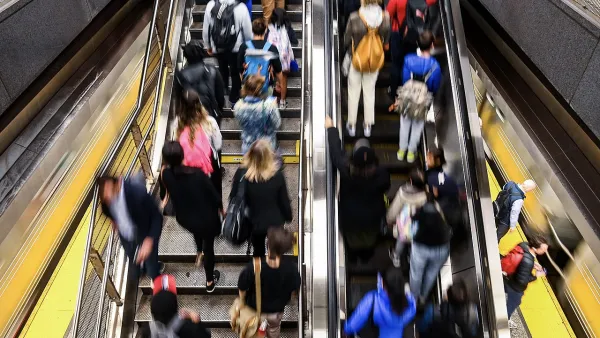The Architect's Newspaper reports on the potentially outsized implications of a recent decision by the New York Landmarks Preservation Commission.
"One downtown preservation group claims that New York has reached the 'end of the landmarks approval process' with one crucial decision this week," according to an article by Audrey Wachs.
"At Tuesday’s Landmarks Preservation Commission (LPC), the commission voted 8–2 to approve a building plan on Gansevoort Street between Greenwich and Washington streets. Some neighborhood activists, though, are not happy about the plan," adds Wachs to describe the specific circumstances leading to the outcry.
The article includes details about the proposed plan that upset local preservationists. Developer William Gottlieb Real Estate and Aurora Capital has proposed a plan to modify 60-68 Gansevoort and 70-74 Gansevoort—"two market buildings that date from the late 19th century (but have been modified substantially over time) and are some of the last vestiges of this type of commercial architecture in New York."
The organization Save Gansevort takes exception with the approval of the proposal by the LPC. In a statement following the ruling, Saving Gansevort used strong words to describe the implications of the decision, calling it "the latest sign that unrestricted development is killing the unique character of so many of our city’s most beautiful neighborhoods" and "disconcerting that even our landmarked areas are no longer protected."
Wachs also reports on a city bill also approved this week that expedites the LPC's landmarks approval process. Properties taking to long to move to a vote can now be removed from consideration.
FULL STORY: Is this the end of New York City’s landmarks approval process as we know it?

Planetizen Federal Action Tracker
A weekly monitor of how Trump’s orders and actions are impacting planners and planning in America.

Chicago’s Ghost Rails
Just beneath the surface of the modern city lie the remnants of its expansive early 20th-century streetcar system.

Amtrak Cutting Jobs, Funding to High-Speed Rail
The agency plans to cut 10 percent of its workforce and has confirmed it will not fund new high-speed rail projects.

Ohio Forces Data Centers to Prepay for Power
Utilities are calling on states to hold data center operators responsible for new energy demands to prevent leaving consumers on the hook for their bills.

MARTA CEO Steps Down Amid Citizenship Concerns
MARTA’s board announced Thursday that its chief, who is from Canada, is resigning due to questions about his immigration status.

Silicon Valley ‘Bike Superhighway’ Awarded $14M State Grant
A Caltrans grant brings the 10-mile Central Bikeway project connecting Santa Clara and East San Jose closer to fruition.
Urban Design for Planners 1: Software Tools
This six-course series explores essential urban design concepts using open source software and equips planners with the tools they need to participate fully in the urban design process.
Planning for Universal Design
Learn the tools for implementing Universal Design in planning regulations.
Caltrans
City of Fort Worth
Mpact (founded as Rail~Volution)
City of Camden Redevelopment Agency
City of Astoria
City of Portland
City of Laramie




























